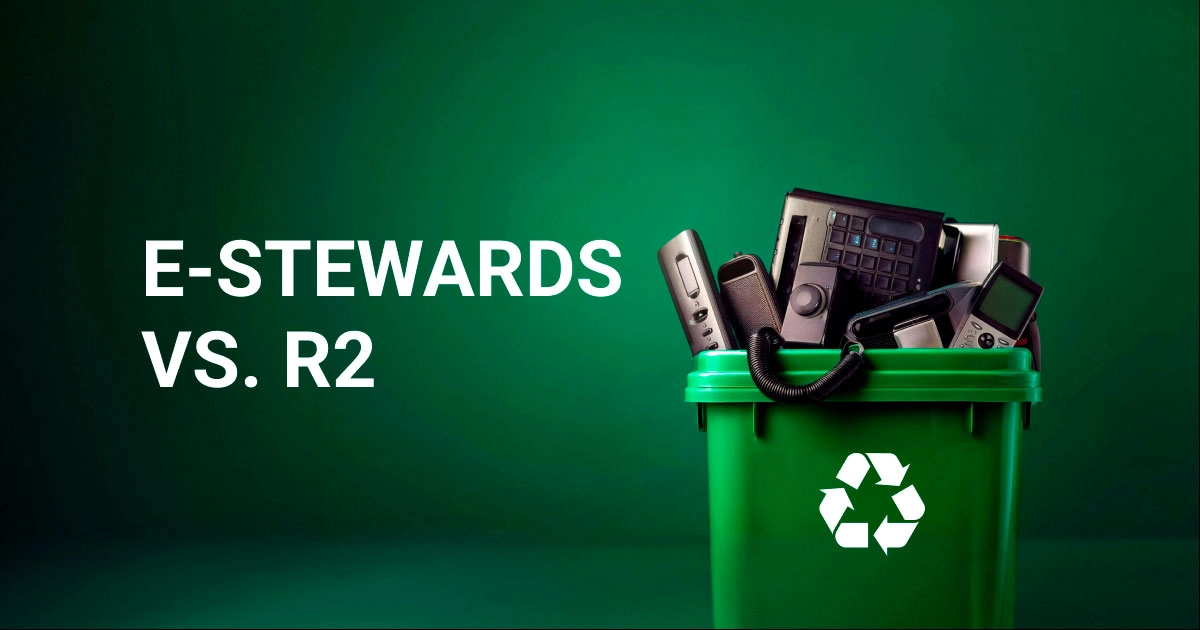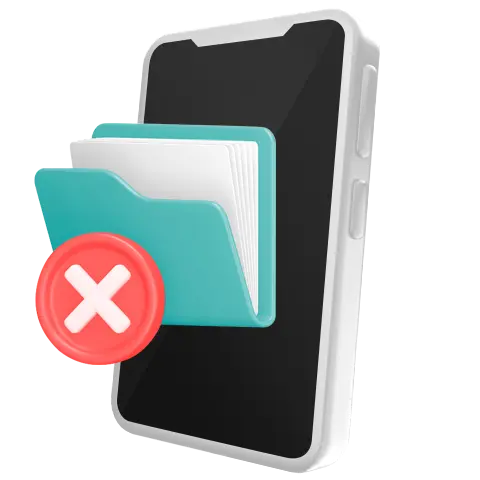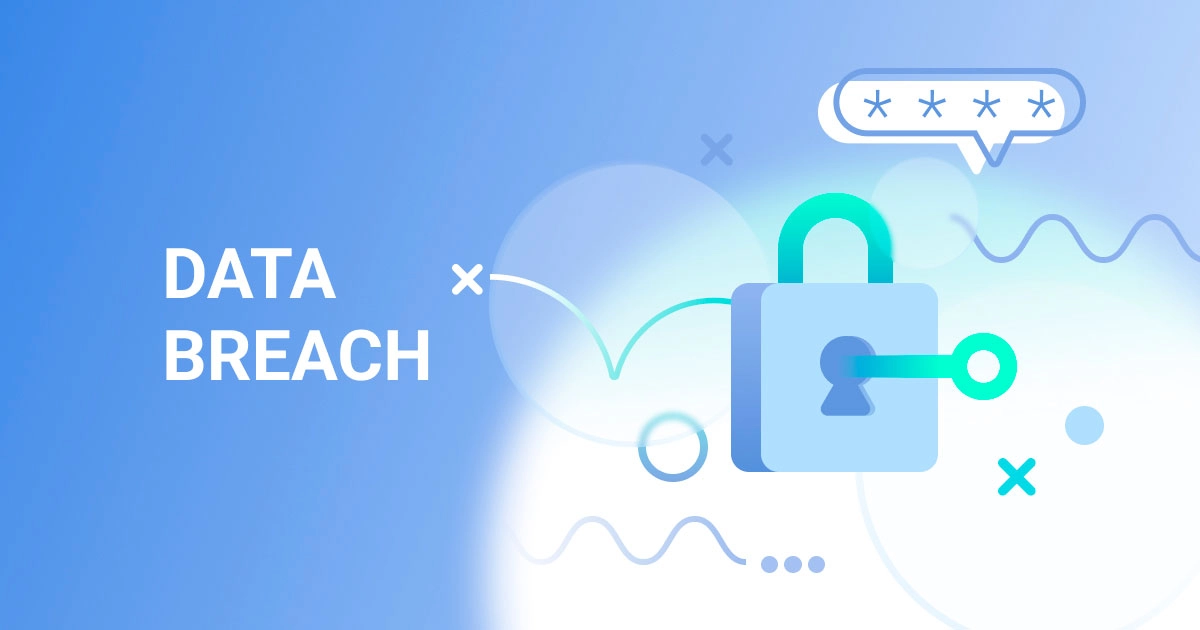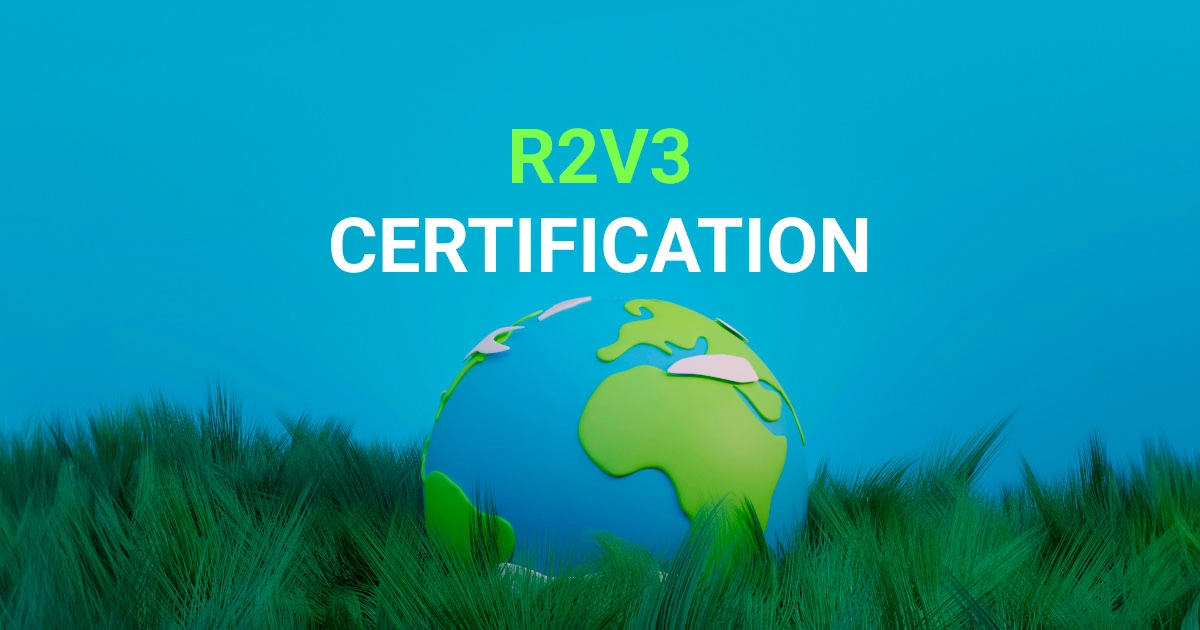According to the World Health Organization, more than 50 million tons of e-waste are produced annually, with less than 20% of it being recycled properly. While decomposing in landfills, electronic waste pollutes the water, soil, and air with toxic materials and harms the environment and human health. Responsible recycling is crucial for minimizing the negative impact of pre-owned electronics. Today, we are discussing and comparing two reputable recycling certifications: R2 and e-Stewards. This article is designed to help you choose the best certification for your used device business.
Why Do You Need to Implement a Recycling Standard?
Electronics recyclers must follow the destruction standard for two main reasons: environmental protection and data security.
During the recycling process, electronics are sorted to separate the parts and devices that can be reused. Prolonging their lifecycle contributes to the circular economy and reduces overproduction. Parts that cannot be used any longer are dismantled and sorted by material. Some, such as metal, are later used in the production of other goods, whereas toxic materials are disposed of in accordance with regulatory guidelines. Recycling e-waste in an environmentally responsible manner is beneficial for the planet and human health.
Additionally, electronics recycling ensures secure and irrecoverable destruction of personal data stored on the device. It is essential to eliminate the risks of data leaks and protect sensitive data. Nowadays, with most information stored digitally, data erasure is a crucial step before physically destroying a device.
Recycling standards regulate the destruction process of devices, ensuring data safety and environmental sustainability. Therefore, recycling should be done by certified parties that are qualified to maintain the process. But which certification to choose?
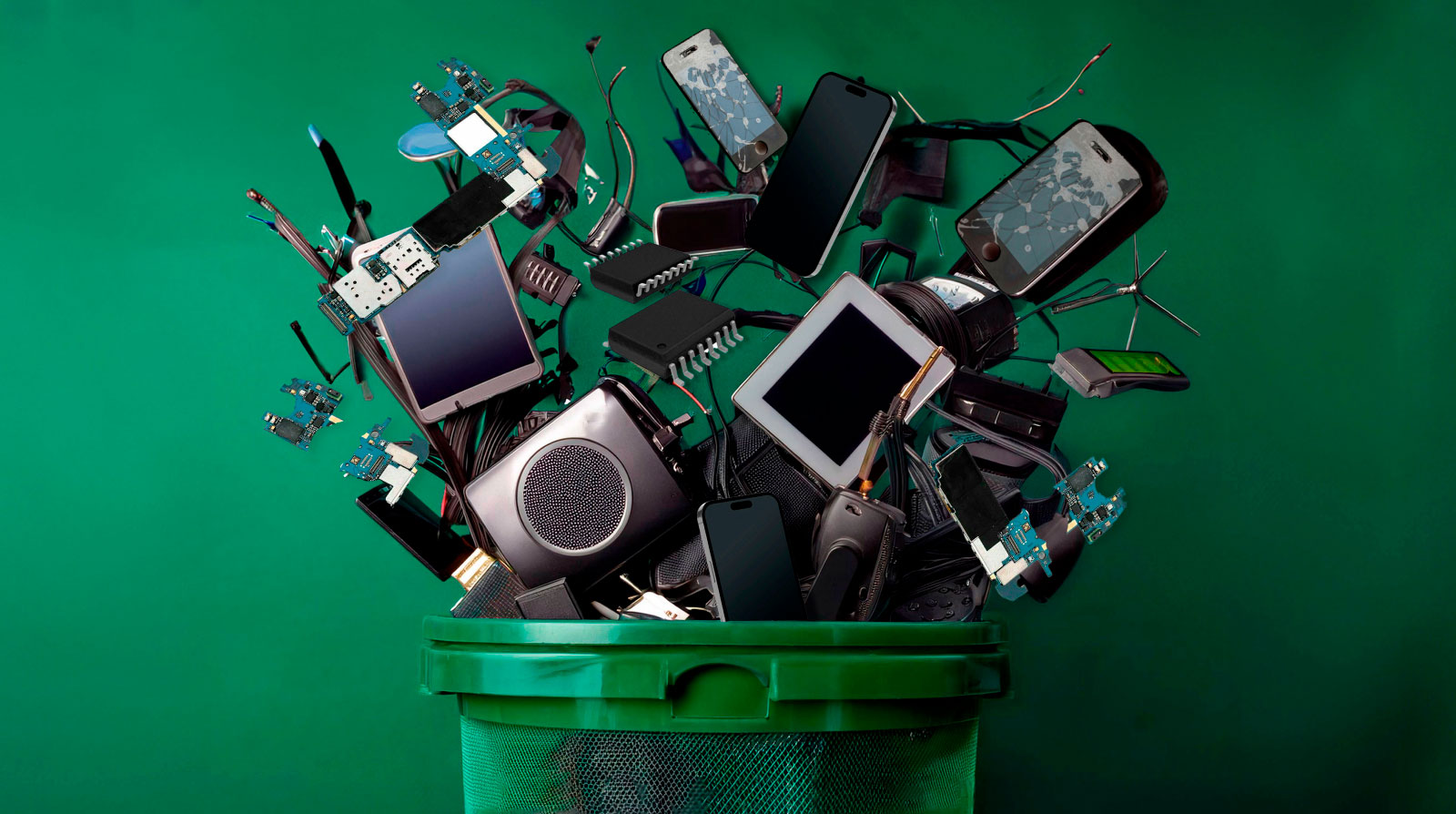
R2: Overview and Requirements
R2 (the abbreviation for Responsible Recycling) is a standard developed by SERI, a non-profit organization focused on solving electronics sustainability problems. The latest version of R2, R2v3, is an adaptable guideline that prioritizes data security and health and environmental standards. R2v3 has two sections: "Core Requirements," which are mandatory for all certified parties, and "Process Requirements," applicable for companies that perform specific processes.
Overall, R2 focuses on prolonging device lifecycles and contributing to the circular economy. Besides being environmentally responsible, R2-certified recyclers should demonstrate a commitment to data protection and health safety.
Companies obtain the certification via audits, which usually take 8 to 12 months to prepare. Maintaining R2 certification involves regular audits to prove ongoing compliance with the standard's recycling practices.
e-Stewards: Overview and Requirements
e-Stewards certification is a guideline created by the Basel Action Network (BAN), a US non-profit organization.
Regarding electronics recycling, e-Stewards requires compliance with ISO 14001, the international environmental management system standard, or RIOS Environmental, and the Basel Convention. This approach ensures toxic materials are safely destroyed rather than exported to developing nations. For data protection, companies should delete information from recycled devices in accordance with NAID AAA certification to eliminate risks of data leaks.
As with R2, e-Stewards are obtained via audits. There are two stages of audits: the first evaluates the company's preparation, and the second determines the standard's implementation.
R2 vs. e-Stewards: Differences
Although the standards are similar, they have several differences:
- R2 promotes a flexible approach to fit various needs. Companies can create custom standards and adapt guidelines to their workflows while still adhering to the core and process requirements of R2v3. Conversely, e-Stewards certification sets stringent rules, so the recycling process should be maintained the same way across different ITAD vendors.
- Both standards have variable costs depending on the company size and other factors. However, R2 prices tend to be more predictable and potentially lower than e-Stewards prices.
- Export conditions under e-Stewards certification are significantly stricter, as the standard advocates for domestic processing and strongly opposes sending toxic materials to developing countries. Export is permitted only to countries that are part of the Basel Convention and comply with its requirements. In contrast, R2 certification allows the export of e-waste to developed countries under controlled conditions.
Despite the differences, the standards share mutual goals and have numerous common features. Both aim to ensure environmentally responsible recycling practices and secure data destruction, contributing to sustainability and data protection.
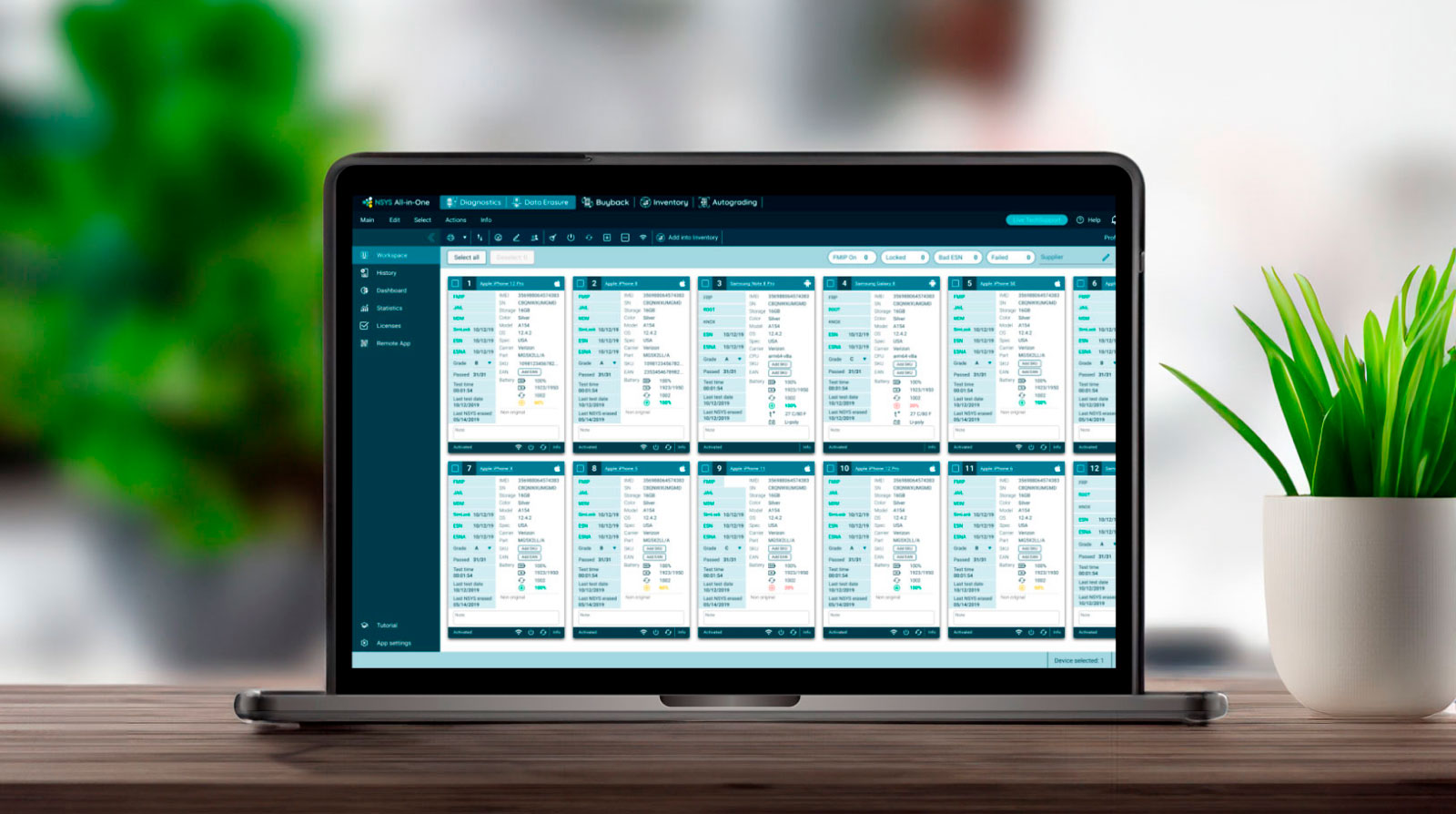
What Recycling Standard to Choose for Your Business?
When choosing a certification for your business, decide what aspects of the guidance are the most valuable for your needs.
If you need a more flexible standard that allows you to export materials to other countries, R2 might be a better option. Widely recognized across the globe, this standard ensures reliable recycling and data security.
However, if you need a more rigid certification with a focus on international environmental and social justice, consider implementing e-Stewards certification. It will provide ethical e-waste disposal following the latest standards.
How to Ensure Safe and Secure Data Erasure?
No matter which certification you choose, you need to ensure that irrecoverable data destruction is done in accordance with international laws and guidance. Consider implementing NSYS Data Erasure, a solution by NSYS Group, a reliable and longstanding member of the industry.
NSYS Data Erasure is an advanced software tool for certified data destruction from Apple and Android electronic devices. It can perform data erasure from multiple phones or tablets simultaneously and provides a certificate with the results for each device. The data destruction is done in accordance with international standards, such as ADISA and NIST.
Try the NSYS Data Erasure solution for your business!


